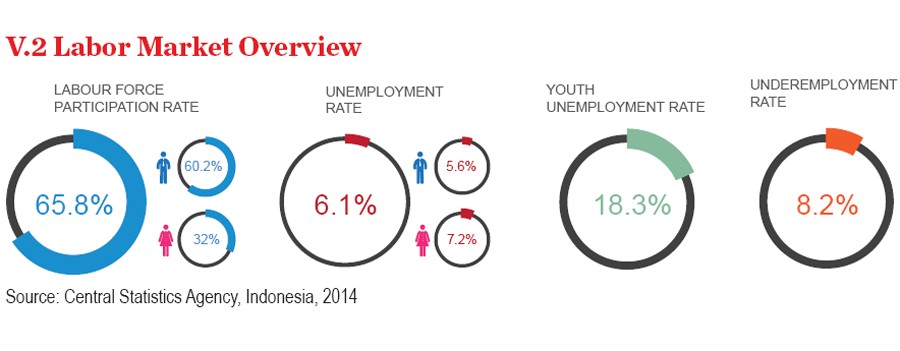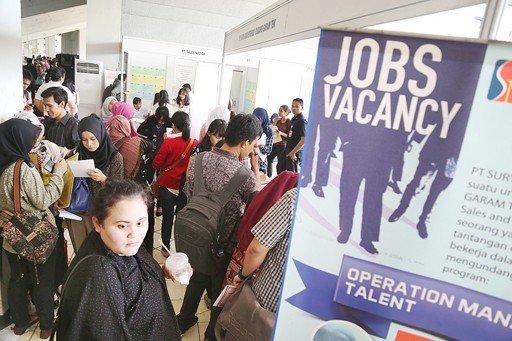Popular Reads
Top Results
Can't find what you're looking for?
View all search resultsPopular Reads
Top Results
Can't find what you're looking for?
View all search resultsProductive Indonesians struggle to find jobs
Change text size
Gift Premium Articles
to Anyone
A
lthough Indonesia is blessed with a demographic bonus, meaning that productive-aged people outnumber children and the elderly, many young graduates are having difficulties finding jobs because of a major skills gap.
Youth unemployment for those aged 15 to 24 is a serious problem in Indonesia, according to a study on skilled labor within five Southeast Asian countries released on Tuesday by JP Morgan and Singapore Management University (SMU).
Indonesia faces the most severe youth unemployment problem with close to 20 percent of the country’s youth not being able to find a job, a level that is close to that in the crisis-hit eurozone and the highest among the countries surveyed in the report, namely Malaysia, Singapore, Thailand and the Philippines.
Indonesia and the Philippines, which both aim to join the ranks of upper middle-income countries, face the daunting challenge of equipping their workers with basic skills and the knowledge required by key growth industries that need basic science, technology, engineering and mathematics skills.
“In both countries, the public sector is under tremendous pressure to prepare workers to pick up job-specific skills,” the report reads. Indonesia’s youth unemployment rate has consistently trailed the Philippines’ 16 percent for many years, while Thailand has the lowest unemployment rate of 0.9 percent.
The fact that one in three young Indonesians remain unemployed for 12 months, despite having a tertiary education, reflects a mismatch between the skills that Indonesia’s youth possess and the skills that industries require, according to an Asian Development Bank (ADB) report.
To tackle this huge skills gap, the government is trying to create a “national internship roadmap” to link graduates from vocational schools to workplaces.
“We are working on it,” Coordinating Economic Minister Darmin Nasution said on Monday.
Darmin expected that a master plan for the roadmap would be issued at the beginning of next year and would involve four ministries, namely the Research and Technology and Higher Education Ministry, the Culture and Education Ministry, the Manpower Ministry and the Religious Affairs Ministry.
The government would also change the vocational certification system so it allowed students to get certificates every year, as opposed to three years at present, so that students could still find jobs even if they decided to quit during the middle of their studies, he said.
The Manpower Ministry, for one, already has an internship program. The program has collaborated with 2,648 companies since August, the ministry’s labor market development director Roostiawati said.
 (-/-)
(-/-)
As internships are already part of vocational school programs and universities, the government needs to do more than just present a roadmap, said Hadi Subhan, a law and manpower expert from Surabaya’s Airlangga University.
“It is not effective. The government should revitalize vocational education instead,” Hadi said.
The JP Morgan-SMU report recommends that the government develop a skills training roadmap, relax rules on skilled foreign workers and expand efforts to raise the youth employment rate. The private sector is also urged to forge a stronger role in leading skills training.
“A large and persistent skills gap in eight key growth sectors will undermine the country’s ambition of graduating into a middle-income country in the medium term,” reads the report, referring to Indonesia’s top sectors, namely agriculture, mining, energy, manufacturing, marine, tourism, telecommunications and the development of strategic areas. (wnd)
Stefani Ribka contributed to this story.










